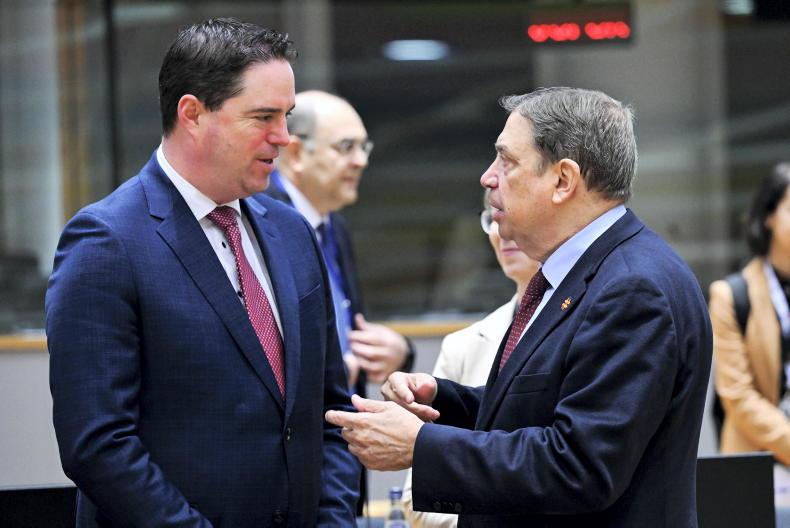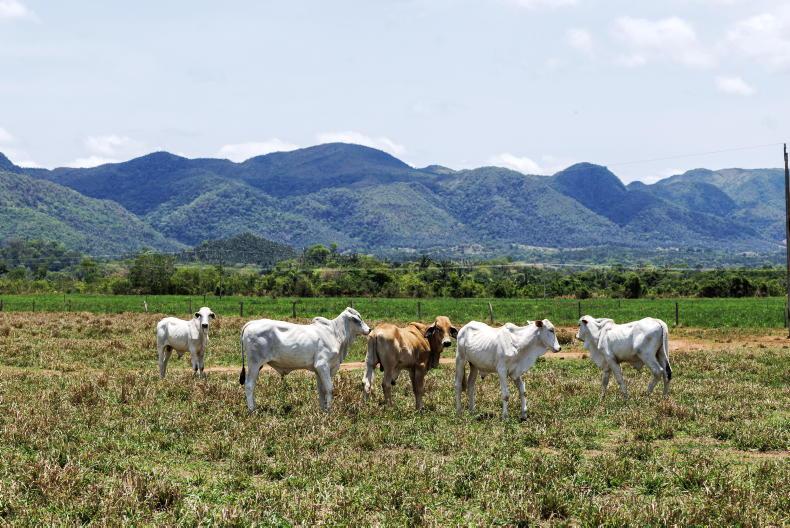Global Britain may mean more global warming. One of the goals of Boris Johnson’s government is to see the UK play an independent role in the world, reminiscent of its position a century ago, when the UK was seen as a global, rather than as merely a European power.
Brexit provides the UK with the necessary independence, both psychological and legal. Its ability to make its own trade agreement adds an economic dimension to this quest for global relevance.
The fact that the first trade agreement the UK negotiated was with faraway Australia, soon to be followed by New Zealand, underlines the global dimension
Having rejected membership of the EU customs union, the UK is now applying to join something called the Comprehensive and Progressive Agreement for a Trans Pacific Partnership (CPTPP). CPTPP’s members include Japan, Vietnam, Peru, Chile, Mexico as well as Australia and New Zealand – all countries that border on the Pacific.
It is impossible to reconcile the UK government’s plans to combat climate change, with its post-Brexit trade policies
Apart from Pitcairn Island and its few hundred inhabitants, no UK territory borders the Pacific. This defiance of geography in UK trade policy is hard to reconcile with the Johnson government’s other global goal, which is to give a lead to the world on combating climate change, by cutting CO2 emissions, which the UK hopes will be agreed at the big conference it is hosting in Glasgow later this year.
It is impossible to reconcile the UK government’s plans to combat climate change, with its post-Brexit trade policies.
Replacing trade with nearby EU countries, such as Ireland and France, with trade with distant Pacific countries, such as Australia, Japan, Vietnam and New Zealand, will increase the UK’s contribution to greenhouse gas emissions through the inevitable extra CO2 emissions from long-distance shipping and refrigeration.
Shipping route
The longer the shipping route, the more CO2 emissions there will be. Ships use the dirtiest of fuels. Global shipping already generates as much CO2 as 205m cars. Refrigeration on long sea journeys adds to emissions.
If it is, for example, UK trade policy to import dairy or livestock products from New Zealand, rather than from Ireland or France, this will add dramatically to the damage done by trade policy to the world’s climate. The EU needs to point out this contradiction in UK policies to the participants in the Glasgow climate change conference.
A recent interview of Lord David Frost with Anand Menon of the thinktank “UK in a Changing Europe” (scan the QR code, right, on your smartphone to watch the interview) gives more insight into the muddled, and half-formed thinking that underlies the UK’s post-Brexit policy.
He claimed that, until Boris Johnson came to office, the EU side had felt that the UK had no alternative to a negotiated agreement and that the UK was thus in a weak negotiating position.
His role was to explain that the UK was willing to accept a “no deal” outcome and that on that basis, did have an alternative to a negotiated agreement with the EU.
For him, Brexit seems to have been an act of faith, not of calculation
The UK, he said, was always willing to bear the costs involved in leaving the EU customs union and single market, but he admitted he did not yet know exactly what these losses and gains would be.
For him, Brexit seems to have been an act of faith, not of calculation. He was pressed to give more information on the potential benefits of Brexit.
He hoped that, as a result of it, the UK might become a “magnet for investment” and achieve higher productivity. Pressed on how this might happen, he said the UK, while in the EU, had got used to having rules set for it by others and did not think for itself, even in areas where the EU actually imposed no legal restraint on what the UK might do. This argument may have some validity.
If this is the case, Brexit is an internal UK psychological project, designed to free up the way the UK thinks about itself and about what it can do. This suggests that UK political leadership is unable to change the UK sufficiently, without the aid of a self-generated external shock, like Brexit.
This freedom is obviously important to him but it is hardly consistent
Brexit, although decided, continues to radically divide UK public opinion. A deeply divided society is not the best environment for the sort of psychological transformation that Brexiteers like Lord Frost have in mind. Lord Frost said that post-Brexit, UK citizens would be “living in a country where every policy can be changed after an election”. This freedom is obviously important to him but it is hardly consistent with wanting the UK to become a “magnet for investment”!
Overseas investment
In my experience in Ireland, the best way to attract overseas investment is to have some key policies that attract investors, that do not change after every election (eg the corporate tax rate or freedom of capital movements). As to concrete things that Brexit would enable the UK to do, Lord Frost offered the examples of:
Reform of its agricultural policy.Changes on state aids to industry.Changes in immigration policy.Freeports.The direction of the new UK policy on agriculture is similar to the one the EU is taking anyway. Freeports divert trade from one place to another, rather than increase it.
State aids to industry, if not subject to external control, can be wasteful, as we saw in Ireland in the 1970s.
Lord Frost is an able man, who presented his case in a friendly way, but I fear neither he, nor his prime minister, have even begun to join up their thinking
It would appear that UK immigration policy is now to encourage people from further away to come to the UK, to replace immigrants from neighbouring EU countries, who are less welcome now. Lord Frost is an able man, who presented his case in a friendly way, but I fear neither he, nor his prime minister, have even begun to join up their thinking on trade and climate change.
On the Northern Ireland Protocol, Lord Frost seemed to blame the EU, for the terms of an agreement his own government had negotiated and his own parliament had approved. He even spoke about what he called EU “intervention in Northern Ireland”, as if this was not at the heart of the protocol Boris Johnson signed. This sort of blame shifting is not to the credit of the UK, as a sovereign country.
The UK is now trying to change the protocol it agreed. It is trying to persuade the EU to make changes that would fundamentally change the nature of the EU’s own customs code. I do not see either the Commission, or other EU states, being comfortable with setting a precedent like that for a country that has left the EU of its own accord.
Global Britain may mean more global warming. One of the goals of Boris Johnson’s government is to see the UK play an independent role in the world, reminiscent of its position a century ago, when the UK was seen as a global, rather than as merely a European power.
Brexit provides the UK with the necessary independence, both psychological and legal. Its ability to make its own trade agreement adds an economic dimension to this quest for global relevance.
The fact that the first trade agreement the UK negotiated was with faraway Australia, soon to be followed by New Zealand, underlines the global dimension
Having rejected membership of the EU customs union, the UK is now applying to join something called the Comprehensive and Progressive Agreement for a Trans Pacific Partnership (CPTPP). CPTPP’s members include Japan, Vietnam, Peru, Chile, Mexico as well as Australia and New Zealand – all countries that border on the Pacific.
It is impossible to reconcile the UK government’s plans to combat climate change, with its post-Brexit trade policies
Apart from Pitcairn Island and its few hundred inhabitants, no UK territory borders the Pacific. This defiance of geography in UK trade policy is hard to reconcile with the Johnson government’s other global goal, which is to give a lead to the world on combating climate change, by cutting CO2 emissions, which the UK hopes will be agreed at the big conference it is hosting in Glasgow later this year.
It is impossible to reconcile the UK government’s plans to combat climate change, with its post-Brexit trade policies.
Replacing trade with nearby EU countries, such as Ireland and France, with trade with distant Pacific countries, such as Australia, Japan, Vietnam and New Zealand, will increase the UK’s contribution to greenhouse gas emissions through the inevitable extra CO2 emissions from long-distance shipping and refrigeration.
Shipping route
The longer the shipping route, the more CO2 emissions there will be. Ships use the dirtiest of fuels. Global shipping already generates as much CO2 as 205m cars. Refrigeration on long sea journeys adds to emissions.
If it is, for example, UK trade policy to import dairy or livestock products from New Zealand, rather than from Ireland or France, this will add dramatically to the damage done by trade policy to the world’s climate. The EU needs to point out this contradiction in UK policies to the participants in the Glasgow climate change conference.
A recent interview of Lord David Frost with Anand Menon of the thinktank “UK in a Changing Europe” (scan the QR code, right, on your smartphone to watch the interview) gives more insight into the muddled, and half-formed thinking that underlies the UK’s post-Brexit policy.
He claimed that, until Boris Johnson came to office, the EU side had felt that the UK had no alternative to a negotiated agreement and that the UK was thus in a weak negotiating position.
His role was to explain that the UK was willing to accept a “no deal” outcome and that on that basis, did have an alternative to a negotiated agreement with the EU.
For him, Brexit seems to have been an act of faith, not of calculation
The UK, he said, was always willing to bear the costs involved in leaving the EU customs union and single market, but he admitted he did not yet know exactly what these losses and gains would be.
For him, Brexit seems to have been an act of faith, not of calculation. He was pressed to give more information on the potential benefits of Brexit.
He hoped that, as a result of it, the UK might become a “magnet for investment” and achieve higher productivity. Pressed on how this might happen, he said the UK, while in the EU, had got used to having rules set for it by others and did not think for itself, even in areas where the EU actually imposed no legal restraint on what the UK might do. This argument may have some validity.
If this is the case, Brexit is an internal UK psychological project, designed to free up the way the UK thinks about itself and about what it can do. This suggests that UK political leadership is unable to change the UK sufficiently, without the aid of a self-generated external shock, like Brexit.
This freedom is obviously important to him but it is hardly consistent
Brexit, although decided, continues to radically divide UK public opinion. A deeply divided society is not the best environment for the sort of psychological transformation that Brexiteers like Lord Frost have in mind. Lord Frost said that post-Brexit, UK citizens would be “living in a country where every policy can be changed after an election”. This freedom is obviously important to him but it is hardly consistent with wanting the UK to become a “magnet for investment”!
Overseas investment
In my experience in Ireland, the best way to attract overseas investment is to have some key policies that attract investors, that do not change after every election (eg the corporate tax rate or freedom of capital movements). As to concrete things that Brexit would enable the UK to do, Lord Frost offered the examples of:
Reform of its agricultural policy.Changes on state aids to industry.Changes in immigration policy.Freeports.The direction of the new UK policy on agriculture is similar to the one the EU is taking anyway. Freeports divert trade from one place to another, rather than increase it.
State aids to industry, if not subject to external control, can be wasteful, as we saw in Ireland in the 1970s.
Lord Frost is an able man, who presented his case in a friendly way, but I fear neither he, nor his prime minister, have even begun to join up their thinking
It would appear that UK immigration policy is now to encourage people from further away to come to the UK, to replace immigrants from neighbouring EU countries, who are less welcome now. Lord Frost is an able man, who presented his case in a friendly way, but I fear neither he, nor his prime minister, have even begun to join up their thinking on trade and climate change.
On the Northern Ireland Protocol, Lord Frost seemed to blame the EU, for the terms of an agreement his own government had negotiated and his own parliament had approved. He even spoke about what he called EU “intervention in Northern Ireland”, as if this was not at the heart of the protocol Boris Johnson signed. This sort of blame shifting is not to the credit of the UK, as a sovereign country.
The UK is now trying to change the protocol it agreed. It is trying to persuade the EU to make changes that would fundamentally change the nature of the EU’s own customs code. I do not see either the Commission, or other EU states, being comfortable with setting a precedent like that for a country that has left the EU of its own accord.








SHARING OPTIONS